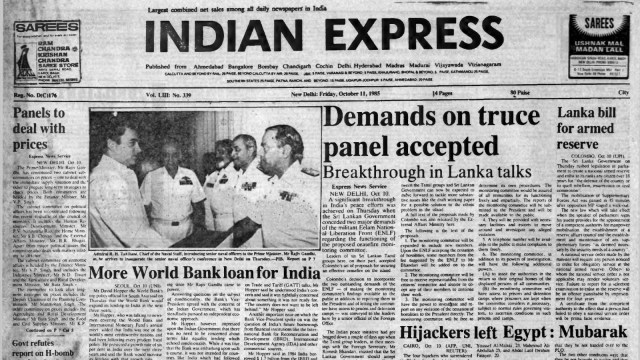
David Hopper, the World Bank’s top policy official for South Asia, said that the WB would expand its lending to India in the next three years. Hopper added that India was one of the world’s most creditworthy nations and had been following every prudent fiscal policy. He projected a growth rate of six per cent over the next three years.
A significant breakthrough in India’s peace efforts was achieved when the Sri Lankan government conceded two major demands of the militant Eelam National Liberation Front (ENLF) regarding the functioning of the proposed ceasefire monitoring committee. Leaders of six Sri Lankan Tamil groups in New Delhi accepted Colombo’s set of proposals.
The Sri Lankan government rushed through legislation in Parliament to create a national armed reserve and enlist in its ranks any citizen over 18 years for “the defence of the country or to quell rebellion, insurrection or civil commotion”. The new law provides for the appointment of a competent authority for manpower mobilisation, the establishment of a reserve affairs council and the establishment and maintenance of any supplementary forces “as deemed necessary by the security needs of a country”.
PM Rajiv Gandhi has constituted two cabinet subcommittees on prices — one to deal with the immediate supply situation and the other to prepare long-term strategies to check prices. Both are headed bv Finance Minister V P Singh. The cabinet committee on political affairs has been reconstituted following the recent reshuffle of the Council of Ministers.